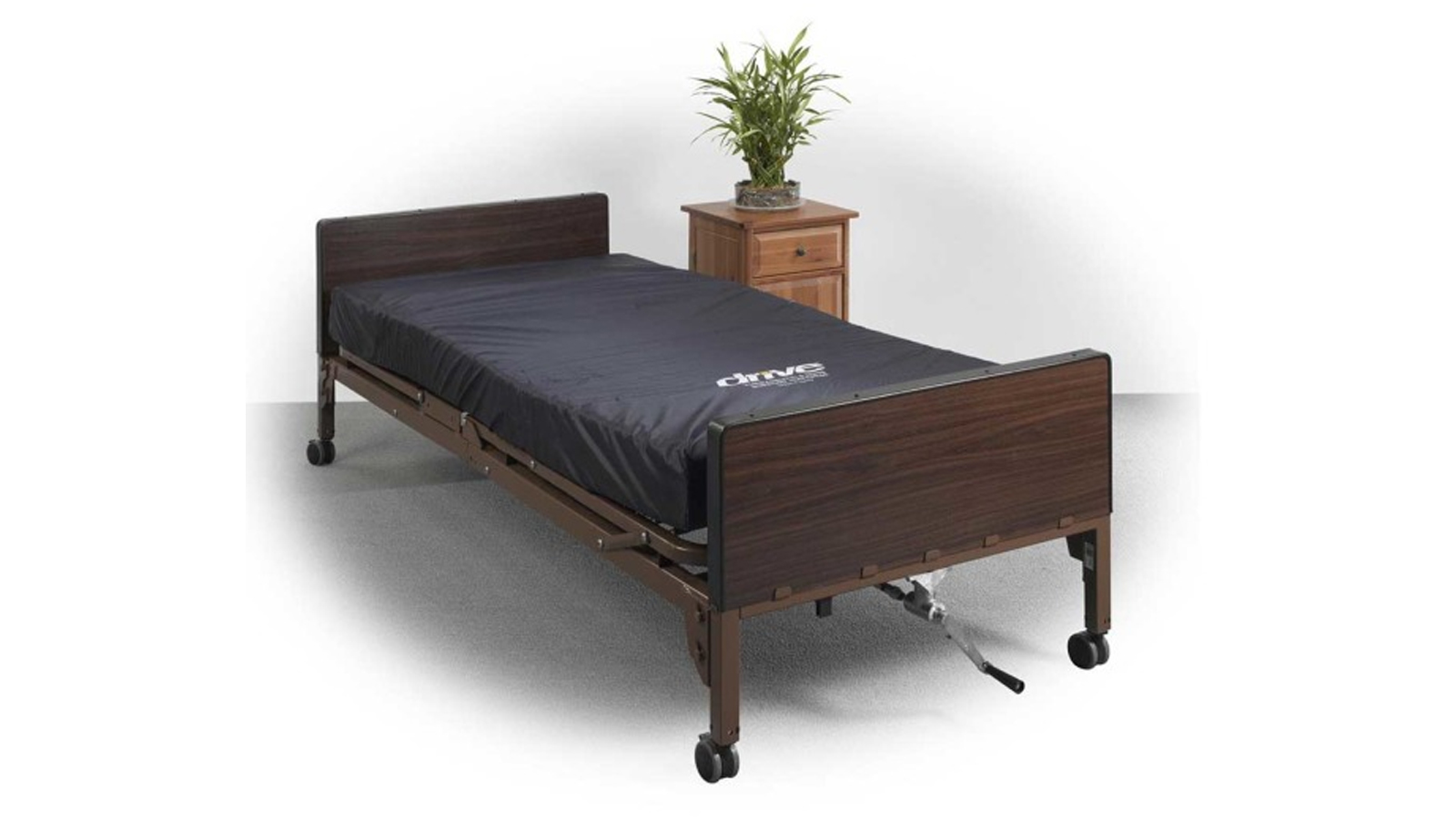What types of mattresses are covered by Medicare?
Find out if Medicare could pay for your new mattress

Choosing the best mattress requires careful consideration – even more so as you get older. Selecting a suitable mattress can help reduce pain and discomfort, as well as enhance sleep quality, which can lead to higher energy levels during the day.
It’s for this reason that many older individuals, or those with specific medical conditions, prefer to invest in a specialist mattress that provides tailored support. However, while these mattresses can be beneficial, they can also be very expensive – often costing thousands of dollars.
The good news is Medicare provides coverage for certain types of mattresses under specific conditions, as we explain below…
What types of mattresses are covered by Medicare?
To obtain a mattress covered by Medicare, it must qualify as Durable Medical Equipment (DME).
DME is medically necessary equipment prescribed by healthcare professionals to assist people with disabilities, injuries or chronic health conditions in their everyday lives. To be classified as DME, equipment must usually meet the following criteria:
- Durability: Must be able to withstand repeated use and expected to last three years or more.
- Medical purpose: Its primary use is to serve a medical purpose and is therefore typically only useful to someone who is sick or injured.
- Home use: The most appropriate use is in the home, although it can also be used outside the home.

Medicare-covered DME includes crutches, walkers, hospital beds, wheelchairs, blood sugar monitors and patient lifts, as well as certain mattresses. These mattresses must be prescribed by a doctor and deemed medically necessary to treat certain health issues.
Top mattresses covered by Medicare
You’ll typically find that only hospital bed mattresses and pressure-reducing mattresses are covered by Medicare. These are commonly used for conditions such as sciatica and arthritis.
Get instant access to breaking news, the hottest reviews, great deals and helpful tips.
Below is a list of some of the top mattresses that are approved by Medicare:
- Solace Resolution Glissando Heavy Duty Mattress: Designed to prevent friction and shear and stop ulcers from forming, this mattress also has two layers of high-density foam for added comfort.
- Joerns PrevaMatt Defend Pressure Relief Mattress: Constructed for even pressure redistribution, this mattress is designed to prevent a range of health issues, including pressure ulcers. Buyers can choose between flat or sidewalls, with each mattress coming with a two-way stretch, nylon mattress cover.
- Drive Medical Therapeutic 5-Zone Support Mattress: This high-quality foam mattress is suitable for those who need pressure redistribution, shear and friction reduction. It uses a convoluted top layer to distribute weight evenly across five zones.
- Drive Medical Alternating Pressure Low Air Loss Mattress System: This mattress is designed to prevent and treat pressure ulcers. It operates in either an alternating or static pressure mode, with 20 air bladders that can deflate in 20 seconds in an emergency.
- ThevoRelief Pressure Relief Mattress: Specifically designed for those experiencing pain due to pressure and mobility issues, this mattress provides pressure relief with gentle nerve stimulation to help you sleep.
What types of mattresses are not covered by Medicare?
Medicare generally doesn’t cover standard mattresses found in a typical bedroom. If you’re buying a mattress for non-medical use, and not for health conditions such as sciatica and arthritis, you won’t benefit from financial support. (You won’t qualify just because you’ve chosen a mattress for back pain, for instance.)
Medicare only covers mattresses that qualify for DME designation, and provided your doctor has given you a prescription or medical note to state the mattress is a medical requirement for your condition.
How much of the mattress purchase will Medicare cover?
Medicare Part A covers bedding for inpatient care in hospitals, skilled nursing facility care, or hospice care. Part B covers DME, including mattresses, required for home use.
Medicare will usually cover 80% of the cost of your new mattress, and you’ll need to pay the remaining 20%. You’ll also need to pay the yearly Part B deductible, which is $257 for 2025.
The exact amount you’ll pay for your mattress depends on the type of mattress you’ve chosen, and whether you buy or rent it. It’s important to buy or rent your mattress from a Medicare-approved supplier as these agree to the price set by Medicare. If you use a different supplier, you may have to pay more – potentially the full cost of the mattress.
Who is eligible for a mattress covered by Medicare?
The first step to qualifying for a mattress covered by Medicare is to have a doctor’s prescription. This must state you have a medical condition that requires a specialized pressure-reducing or hospital bed mattress.
The prescription must include details of your condition and how the mattress could improve your health. Qualifying conditions include arthritis, sciatica, chronic bedsores, and spinal cord injuries. The mattress must also qualify as DME.
Once you have your prescription, and any other relevant documentation, you must submit it to Medicare for consideration. If your request is approved, you can make your purchase. Remember to use a Medicare-approved supplier; you can search for approved suppliers on the Medicare website.
Additional considerations when comparing mattresses
When comparing mattresses, remember you will still need to pay 20% of the cost, as well as the deductible. Thus, you need to ensure the mattress meets your needs while also staying within your budget.
It’s sensible to investigate free trial periods, as these allow you to test the mattress at home to see if it suits your needs. Free trial periods can range from 30 to 90 days, and you can return the mattress within this period if it’s not suitable.
Types of mattresses covered by Medicare: summary
Medicare may cover up to 80% of the cost of a mattress if you require a hospital bed mattress or pressure-reducing mattress for a health condition.
To qualify, the mattress must be DME-classified, and you will require a note from your doctor outlining why the mattress is recommended. You must also rent or buy it from a Medicare-approved supplier.
If you do not meet the above criteria, you won’t qualify for financial assistance from Medicare. However, it’s still possible to find an affordable mattress by shopping around and comparing options carefully, as well as checking out the latest mattress deals and sales.
Read more:
- The best mattress for back pain, according to an expert
- What is an orthopedic mattress, a complete guide
- Some mattresses can cause backaches, and here's why
Rachel Wait is a finance expert who has written financial advice articles for some of the world's most trusted money and commerce publications, including The Spectator, Money Supermarket, Money to the Masses, and The Observer. Rachel's expertise is helping people to save money and make the right decisions when it comes to financing projects and products.
You must confirm your public display name before commenting
Please logout and then login again, you will then be prompted to enter your display name.
 Club Benefits
Club Benefits





